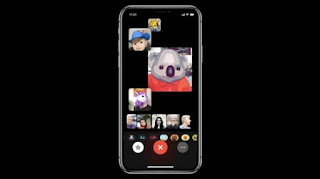Augmented Reality (AR) is a technology that has been gaining momentum in recent years. It allows users to experience digital content overlaid on the real world, creating a unique and immersive experience. With the rise of smartphones, AR has become more accessible than ever before.

What Is AR(Augmented Reality)?
Augmented Reality (AR) is a technology that overlays digital information, such as images, sounds, or text, onto the real world. AR enhances the user’s perception of reality by adding computer-generated elements to the physical environment. AR can be experienced through various devices such as smartphones, tablets, smart glasses, and headsets.Lectura de contenido relacionado:Corrige
0x0 0x0 Error
AR technology has been around for several decades but has gained significant popularity in recent years due to the increasing availability of mobile devices and advancements in computer vision and machine learning. AR has many practical applications in industries such as gaming, education, healthcare, retail, and marketing.
What is Augmented Reality used for?
1. Entertainment: AR is widely used in the entertainment industry to enhance user experiences. For example, AR can be used to create interactive games, immersive movies, and virtual concerts that blend the real and digital worlds.Leer más:G2a sitio
2. Education: AR is also used in education to create interactive learning experiences. For instance, AR can be used to create 3D models of historical artifacts or scientific concepts that students can explore in a hands-on way.
3. Retail: AR is increasingly being used in retail to enhance customer experiences. For example, AR can be used to allow customers to try on clothes virtually or see how furniture would look in their homes before making a purchase.
How is AR experience on Android device?
On Android devices, AR experiences are made possible through Google's ARCore platform. ARCore is a software development kit (SDK) that allows developers to create AR apps for Android devices. It uses the device's camera, sensors, and processing power to track the position and orientation of the device in real-time, allowing virtual objects to be placed and interacted with in the real world.
The AR experience on Android devices can vary depending on the device's hardware specifications, such as camera quality and processing power. However, most modern Android devices should be able to handle basic AR experiences without any issues.
In terms of user experience, AR on Android devices can be quite immersive and engaging. For example, users can use their device's camera to view a real-world environment and see virtual objects overlaid on top of it. This can be used for a variety of applications, such as gaming, education, or shopping.
What Is AR APPs?
Augmented Reality (AR) apps are software applications that use the camera and sensors of a mobile device (like smartphone, rugged phone, tablet pc and more) to overlay digital content onto the real world. AR apps can be used for various purposes, such as entertainment, education, marketing, and more. They are becoming increasingly popular due to advancements in technology and the widespread availability of mobile devices.
What does AR mean in games?
AR stands for Augmented Reality in games. Augmented reality is a technology that overlays computer-generated content onto the real world, creating an interactive and immersive experience for the user. In short, it allows you to see a more 'ideal world'.
Augmented Reality and mixed reality and its application
Augmented Reality (AR) and Mixed Reality (MR) are two cutting-edge technologies that have gained immense popularity in recent years. AR is a technology that overlays digital information on top of the real world, while MR is a more advanced version of AR that allows digital objects to interact with the real world.
The applications of AR and MR are numerous, and they are being used in various industries such as gaming, entertainment, education, healthcare, retail, and manufacturing. Here are some examples of how AR and MR are being used:
1. Gaming: AR and MR are being used to create immersive gaming experiences. Games like Pokemon Go use AR technology to overlay digital creatures onto the real world, while games like Minecraft Earth use MR technology to allow players to build virtual structures in the real world.
2. Education: AR and MR are being used to enhance learning experiences. For example, medical students can use AR technology to visualize the human body in 3D, while history students can use MR technology to explore historical sites.
3. Retail: AR and MR are being used to enhance the shopping experience. Customers can use AR technology to try on clothes virtually or see how furniture would look in their home before making a purchase.






 * Android phone screen mirroring icon
* Android phone screen mirroring icon * iPhone screen mirroring icon
* iPhone screen mirroring icon
 * Type-C + HDMI convert cable
* Type-C + HDMI convert cable